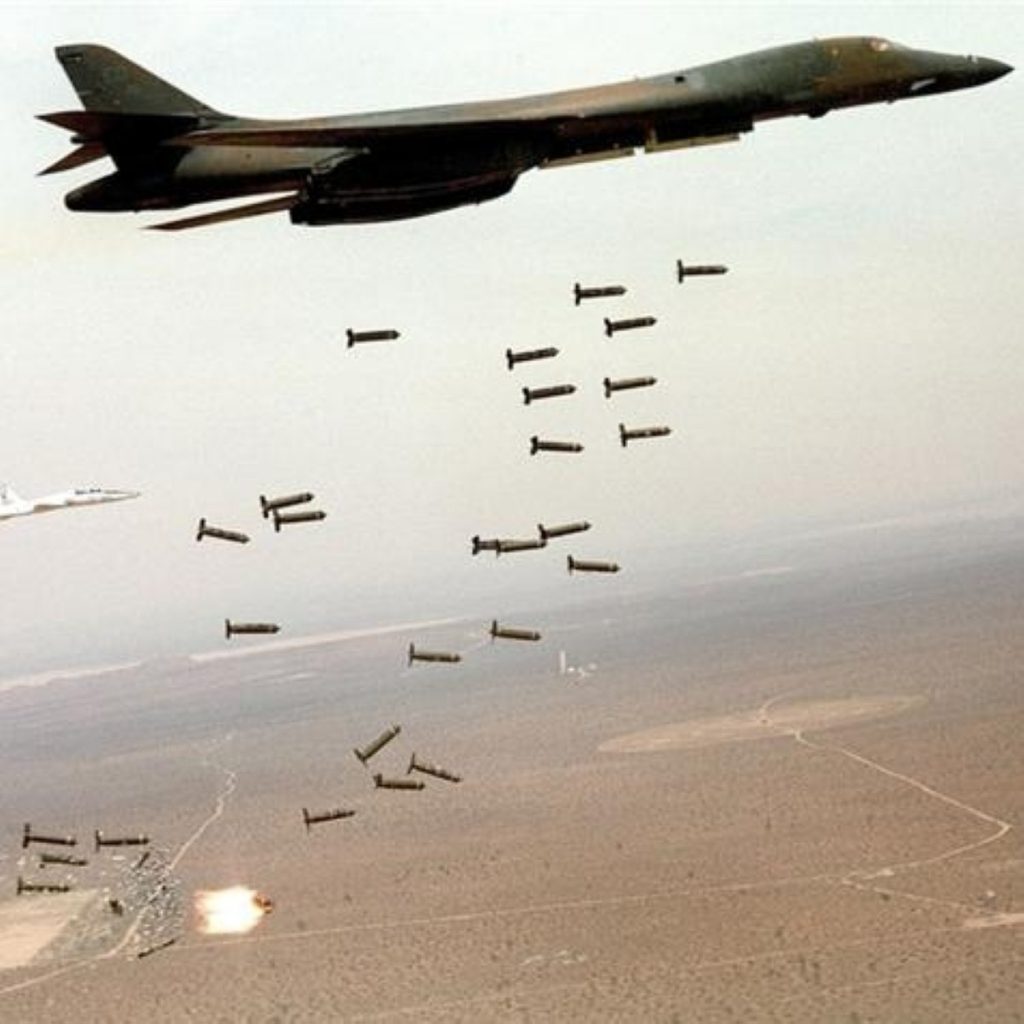Govt ‘unsure’ how many cluster bombs remain unexploded
The government has admitted it has no idea how many of its unexploded cluster weapons litter the world.
Defence minister Bob Ainsworth admitted he could not provide an accurate estimate of the number of unexploded cluster munitions following conflicts in Iraq, Kuwait, Serbia and Kosovo.
Unexploded cluster munitions form the main basis of a ban on the weapon because of the effects they have on civilians after the conflict has passed.
The small pellets can sit on the ground until someone – often children because of the colours on the pellet – pick them up.


Liberal Democrat foreign affairs spokesman Ed Davey seized on the admission to call for a ban on the weapon.
“These weapons have a terrible legacy, yet the government appears to have no idea how many it has used and how many have been made safe.
“It is incredible that the government cannot even provide an estimate as to the nature of the threat.
“David Miliband must not bow to pressure from the MoD or from the US over its own desire to continue storing cluster munitions on British soil. He must sign Britain up to a full ban on these weapons,” he concluded.
The Ministry of Defence (MoD) defended their position, saying: “UK policy recognises the humanitarian concerns raised by cluster munitions.
“The UK, like other countries, has to balance humanitarian concerns with military requirements.”












